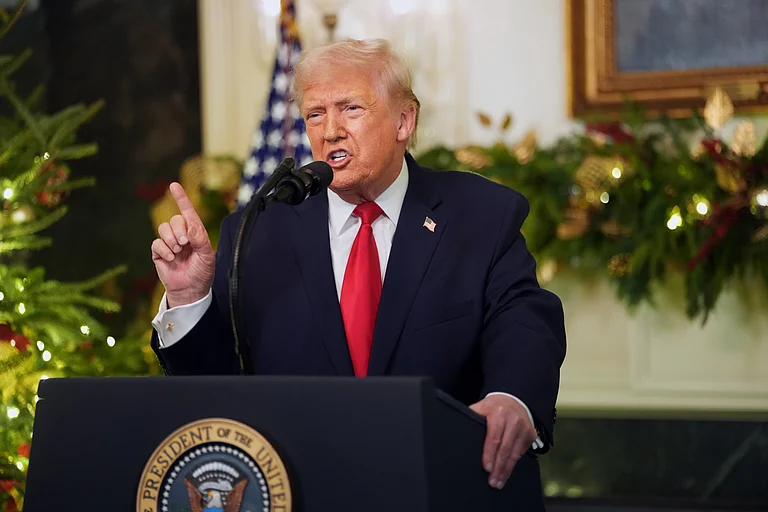For years, there have been countless instances of discriminatory behaviour toward individuals with disabilities in the professional environment. A survey conducted by Equality Human Rights in the year 2022 revealed that at least 18 per cent of respondents reported facing some form of unjust treatment, discrimination, bullying, or harassment in their workplace.
The American India Foundation (AIF) launched DI-verse on March 5. This is an initiative aimed at transforming workplaces into inclusive environments that actively promote the social and financial advancement of Persons with Disabilities (PwDs). AIF claims, that DI-verse bridges the nation’s ambitions of becoming a 5 trillion-dollar economy.
According to the 2011 census, 26.8 million people are disabled in India. That is 2.21 per cent of the total population of the nation. AIF concludes that over 13 million PwDs are employable but only 26 per cent of them are employed. However, activists working on this issue often argue that, during the census, questions related to only 8 kinds of disabilities are asked of the people whereas according to the PwD Act 2016, 21 kinds of disabilities can be certified by the government.
According to Mr Kamesh Sanghi, Director of Livelihood at AIF, “DI-verse is a response to the pressing need to double the number of PwDs engaged in formal sector employment and strengthen the entrepreneurial landscape in India. By acknowledging and celebrating corporations that prioritise the inclusion of PwDs in skill-based positions and high-paying leadership roles, DI-verse seeks to dismantle existing barriers and promote disability-inclusive cultures across the public, private, and multinational sectors.”
Shri Rajesh Agarwal (IAS), Secretary of the Department of Empowerment of Persons with Disabilities, Ministry of Social Justice, and Empowerment was also present during AIF's annual program. In his address, Shri Agarwal commended the DI-verse platform, stating, "With lakhs of PwDs seeking opportunities within India Inc., DI-verse looks very promising. It converges with the government's economic vision to have more inclusive employment strategies, which can help harness the untapped potential of PwDs to propel India's growth story forward."
Mr Agarwal when asked about the discrepancies in the data related to the PwDs, said “In foreign nations, people can get the certification of disability of even 2 per cent but in India, we consider 40% (Orthopedically) as the minimum percentage of disability. We’re trying hard to transcend our policies to the disabled people who live in rural areas.”
Linking DI-verse to the Divyangjan Rojgar Setu PM Daksh Portal, Mr Agarwal highlighted AIF's potential to serve 10 million PwDs across India, bridging the yawning gap between the demand and supply of employment opportunities for this segment of the population.
Mr. Matthew Joseph, Country Director of AIF, emphasized the broader societal impact of inclusive livelihood initiatives: "Entrepreneurship and employment emerge as viable avenues for individuals with disabilities to achieve financial independence and resultant self-sufficiency. Inclusion is not just about economic empowerment; it's about building a society where diversity is celebrated, and everyone has equal opportunities to succeed."
Mr Kamesh Sanghi, highlighted the significance of the DI-verse in the landscape of inclusive development, stating, "We aim to become the leading certification provider, guiding corporations in integrating accessibility seamlessly into various facets of their operations, including communication strategies, policies, infrastructure, and hiring practices."
DI-verse is an offshoot of AIF's leading program - Ability Based Livelihood Empowerment (ABLE), which has trained over 18,000 PwDs and provided jobs to 10,000+ candidates through partnerships with 1,800+ inclusive employers. AIF's initiatives span from sign language courses for corporate employees, and national job fairs for PwDs, to an inclusive policy toolkit, and an AAA-certified accessible job portal, catering to remote and inclusive employment for PwDs. Linked to the Divyangjan Rojgar Setu PM Daksh Portal, this portal is aimed to serve 10 million PwDs across India.
According to Mr Sanghi, The Future of Livelihoods event, with the theme of 'Advancing Disability Inclusive Ecosystem Through Technology and Collaboration,' drove a seminal discourse on collaboration, diversity, and organizational excellence, bringing together 120 subject matter experts, industry leaders, academicians, government officials, and DEI experts. The discussions aimed to advance the cause of employment and entrepreneurship for individuals with disabilities, extending beyond economic considerations while embracing broader societal inclusion and empowerment.
Through thought-provoking events and dialogues, AIF aims to catalyze systemic changes that dismantle existing barriers and promote disability-inclusive cultures across sectors. By leveraging technology and collaboration, the organization seeks to double the number of PwDs engaged in formal sector employment and strengthen the entrepreneurial landscape in India.
According to the American India Foundation, their work to catalyse social and economic change in India has impacted the lives of 12.9 million of India's poor across 35 states and union territories since its inception in 2001. Through its Livelihoods program, AIF envisions a world where poor and vulnerable communities have access to dignified work opportunities, empowering them with sustainable livelihoods. Since 2006, the Livelihoods Program has, directly and indirectly, served 1.4 million people from vulnerable communities.


























